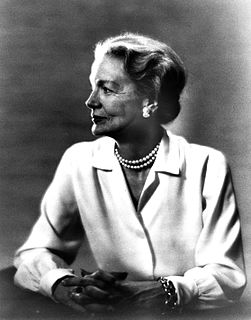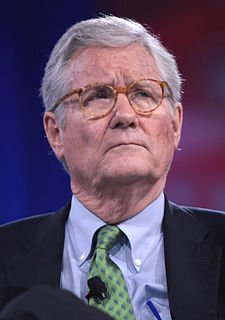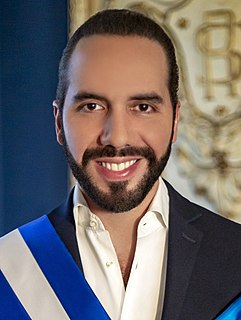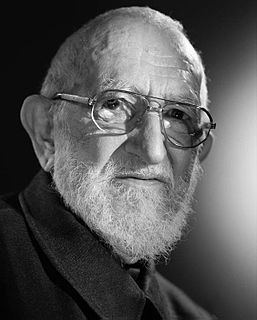A Quote by Michael Parenti
Archbishop Romero of El Salvador was a member of the Salvadoran aristocracy. He could not have risen to the top of the church hierarchy otherwise. But after he began voicing critical remarks about the war and concerned comments about the poor, he was assassinated.
Related Quotes
My middle name is Nicole. It's so weird because my mom is from El Salvador, but my sisters and I have Irish names - Christy, Kelly, and Erin. And Christy and Kelly, they're not even girls' names! In Ireland, they're boys' names. And somehow, my mom was in El Salvador dreaming about Shamrocks before we were born.
At the beginning of his administration, Reagan tried set the basis for American military intervention in El Salvador - which is about what Kennedy did when he came into office in regard to Vietnam. Well, when Kennedy tried it in Vietnam, it just worked like a dream. Virtually nobody opposed American bombing of South Vietnam in 1962. It was not an issue. But when Reagan began to talk of involving American forces in El Salvador there was a huge popular uproar. And he had to choose a much more indirect way of supporting the collection of gangsters in power there. He had to back off.
How many educated Americans can even remember the names of the assassinated Jesuit intellectuals of El Salvador, or would know where to find a word they wrote? The answers are revealing, particularly when we draw the striking - and historically typical - contrast to the attitudes towards their counterparts in enemy domains.
I know my dear brother, President [Barack] Obama, has a bust of Martin King right there in the Oval Office, but the question is are is he going to be true to who that Martin Luther King, Jr., actually is? King was concerned about what? The poor. He was concerned about working people. He was concerned about quality jobs. He was concerned about quality housing. He was concerned about precious babies in Vietnam, the way we ought to be concerned about precious babies in Afghanistan and precious babies in Tel Aviv and precious babies in Gaza.
The president of the University said that night, congratulations to you the students, you've won a great victory, now the war will end. And I'm certain that he believed it that night and I believed it and we went away happy. Four days later, Martin Luther King was assassinated. Two months after that, Kennedy was assassinated. Two months after that, Henry Kissinger emerged from the swamp he was living in at Harvard with a plan to expand the war.
I'm not concerned about the very poor, we have a safety net there, if we need to repair, I'll fix it. I'm not concerned about the very rich, they're doing just fine. I'm concerned about the very heart of America, the 90-95 percent of Americans who are struggling, and I'll continue to take that message across the country.



































